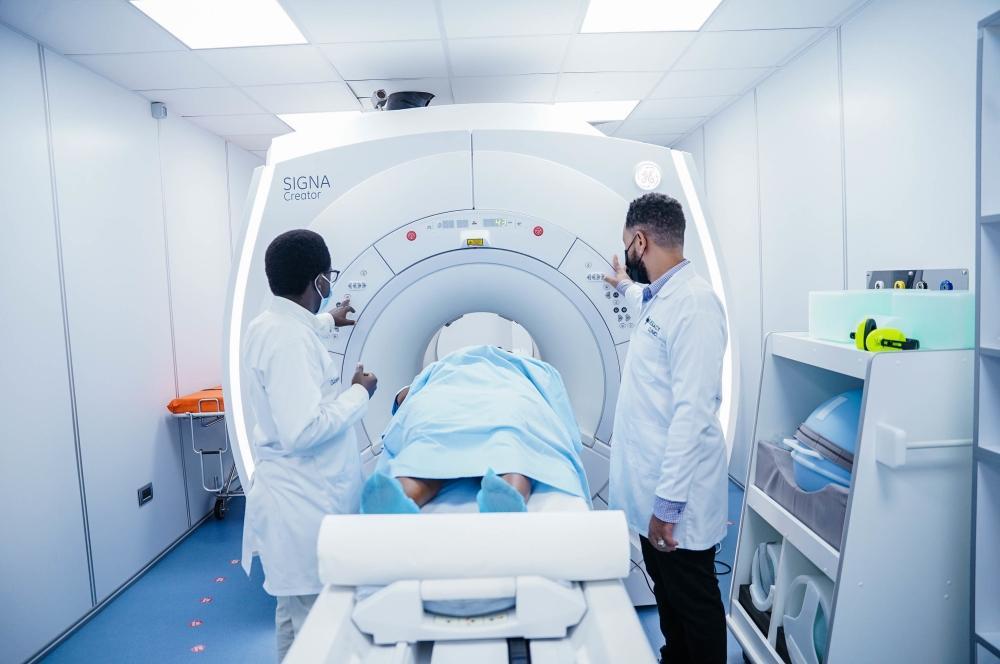Africa-Press – Rwanda. Parliamentarians on Monday, August 4 passed a law introducing 10 key health services aimed at improving access, strengthening service delivery, and addressing current public health challenges.
The law expands patient rights, updates reproductive care guidelines, promotes the use of digital health records, and regulates emerging medical practices.
It also consolidates provisions from the 2013 law on medical professional liability insurance and the 2016 law on human reproductive health into a more organised and easy-to-follow set of laws.
Here are the 10 key services;
1. Reproductive health services for adolescents
Adolescents aged 15 and above will be allowed to access reproductive health services, such as contraception and counseling, without parental consent. The current age limit of 18 has hindered timely support, contributing to rising teenage pregnancies. Parliamentary records show over 22,000 pregnancies among girls in both 2023 and 2024.
The Health Minister, Dr. Sabin Nsanzimana, explained, “Because of the legal barrier tied to age, young girls have been denied access to accurate information on sexual and reproductive health, which increases the risk of teenage pregnancy.”
He added that promoting abstinence and condom use alone has not generated enough results.
2. Assisted reproduction for infertility
The law formally permits medically assisted fertility treatments, including in-vitro fertilization (IVF), for people or couples facing infertility. Such services will be provided only in licensed facilities and under strict clinical and ethical supervision defined by future ministerial regulations. A committee appointed by the Ministry of Health will monitor Assisted Reproductive Technologies (ART) nationwide to protect patients, safeguard the rights of surrogates and donors, and ensure ethical standards
3. Legal surrogacy
Surrogacy will become a lawful reproductive option for those unable to have children due to medical conditions. Defined as a medical technology service involving a signed agreement between the surrogate and intended parents, surrogacy will be available only to married couples and people with medically confirmed infertility or medical conditions. Commercial surrogacy is prohibited.
Dr. Nsanzimana told lawmakers that both surrogates and intended parents will receive psychological support throughout the process.
4. Telemedicine and digital health records
The law recognises electronic health records, including images, videos, and audio, as legally valid. This provision enables telemedicine, allowing patients to receive care remotely.
Health institutions will be required to safeguard patient data and maintain digital record standards, improving access, especially in rural and underserved areas.
5. Emergency medical services and fast-tracked care
For the first time, emergency medical services are clearly defined. Health professionals will be authorised to provide immediate care in life-threatening situations such as trauma, stroke, and severe complications, without administrative delays.
Prompt action will be mandated to prevent death or permanent disability. In emergencies where a patient cannot provide consent, a panel of three doctors may approve treatment to save lives, with the decision properly documented.
6. Specialised tertiary-level care
The law introduces a formal definition of tertiary care, referring to advanced treatments provided by specialists using sophisticated technology. These services will focus on cases requiring specialized care beyond the capacity of primary or district hospitals.
7. Mandatory liability insurance for healthcare providers
All healthcare professionals and institutions must carry liability insurance. This requirement ensures that patients harmed during treatment can seek compensation through proper channels, reinforcing patient safety and professional accountability.
8. Accredited and quality-controlled medical care
Medical services will be delivered by people registered and licensed by professional councils. Licensing will require verified academic qualifications and practical training, protecting professional standards across the sector.
9. Integration of community health workers
Community health workers will be formally recognised as essential contributors to primary care. Selected at the village level, these trained volunteers provide health education and basic treatments. Their specific roles will be outlined by ministerial regulations.
10. Legal guarantee of informed consent
Patients must give clear, informed consent before any medical procedure. Health providers are obliged to explain the nature, risks, benefits, and expected outcomes of treatments. No service may proceed without voluntary, informed agreement from the patient or their legal representative.
“Informed consent must become a legally protected and ethical basis of modern service delivery,” Dr. Nsanzimana emphasized.
For More News And Analysis About Rwanda Follow Africa-Press






